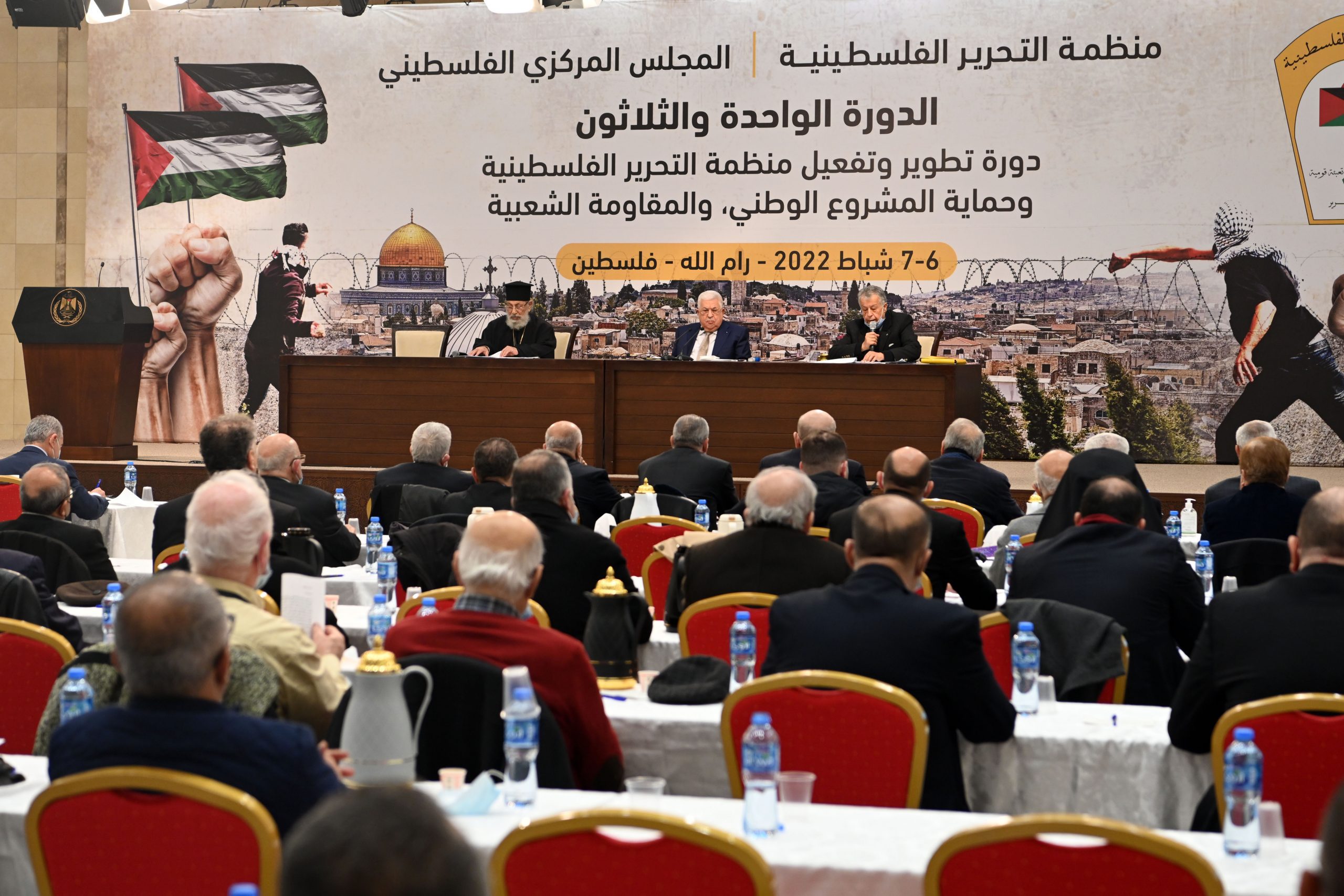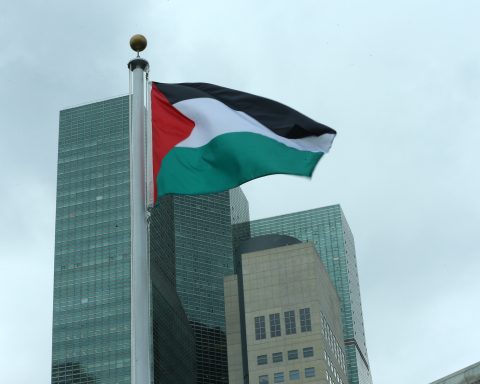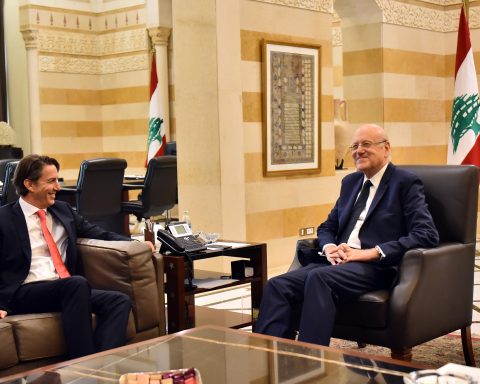The Palestine Liberation Organization’s (PLO) Central Council convened its 31st session on Sunday in the West Bank city of Ramallah, despite a boycott by some Palestinian factions.
The two-day Central Council meeting, dubbed “Developing and Activating the PLO, Protecting the National Project and Popular Resistance,” will focus on Israeli settlement activity, particularly in occupied Jerusalem, as well as the stalled peace process and other political and domestic issues, according to the official Palestinian news agency.
The council is set to elect members of the PLO’s Executive Committee to replace those who have died or resigned, as well as a new leader of the National Council to succeed Salim al-Zanoun, who just resigned.
“We will not tolerate the continuation of Israel’s occupation and colonial tactics that promote apartheid and settlement terrorism,” Palestinian President Mahmoud Abbas declared during the meeting’s opening session.
“In light of the Israeli occupation authority’s efforts to undermine the two-state solution, options remain open, and the entire situation must be evaluated in order to safeguard our people’s and cause’s interests.”
Underscoring the impossibility of unilaterally implementing agreements, Abbas stated that “contacts with the Israeli side are not a replacement for an international-legitimate political settlement.”
In response to Amnesty International’s recent report describing Israel’s treatment of Palestinians as apartheid, Abbas said the study is an “important step” in establishing the reality of Israel’s crimes against the Palestinian people.
He reaffirmed their appeal for the convening of an international peace conference and the establishment of an international framework to protect Palestinians.
Additionally, Abbas emphasized the importance of “increasing the scope of peaceful popular resistance” in defense of Palestinian identity and existence.
Furthermore, he encouraged Palestinian factions to immediately put an end to their internal differences.
Several Palestinian factions, including the Popular Front for the Liberation of Palestine, the Palestinian National Initiative (Al-Mubadara), the Popular Front for the Liberation of Palestine-General Command, and the Vanguard for Popular Liberation War (As-Sa’iqa), boycotted the meetings, claiming they were convened unilaterally and without national consensus.














